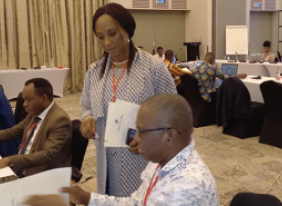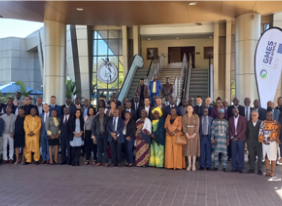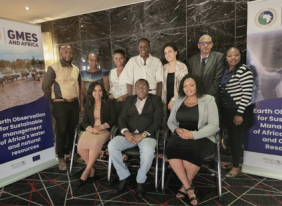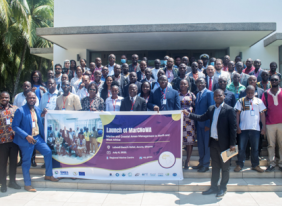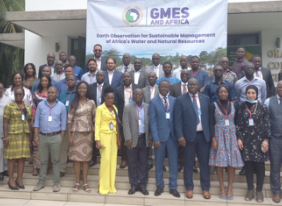The African Union Commission has convened the first continental service workshop on natural and water resources under the second phase of the GMES and Africa program. The three day event which lasts from 13-15 June in Lusaka, Zambia, brings together all eight consortia leading the implementation of the program’s water and natural resources services. The gathering also attracts partners, Regional Economic Communities and European Technical Institutions, among others. It is intended to improve and make earth observation service delivery in Africa user-driven and more sustainable at the technical and financial levels.
At Monday’s opening ceremony, a representative of the Joint Research Center (JRC) of the European Commission … recalled the long history of successful collaboration between Africa and Europe in the earth observation sector which the JRC has supported from the very beginning. He described synergies as the keyword of the GMES and Africa phase 2 where JRC plays a leading role in linking Africa and Europe through cooperation in earth observation. … pledged the European Commission’s commitment to ensuring relevant synergies and linkages with related flagship initiatives and projects in Africa, as well as continued partnership in the implementation of the second phase of GMES and Africa.
The Executive Secretary of CICOS … who spoke on behalf of the consortia, underscored the importance of implementing and consolidating earth observation services in order to make them beneficial to the populations that need them most. This, she noted, is important for communities to continue reaping the program’s benefits long after it has wound down.
The Coordinator of GMES and Africa Dr. Tidiane Ouattara, outlined some of the important points of the program’s second phase, including working together through, networking, knowledge sharing, and contributing to the African Agenda 2063. He indicated that lessons learnt from phase one should contribute towards greater access to data and products, partner and institutional involvement, as well as gender, policy and institutional frameworks. Dr. Ouattara posited that the convergence is an opportunity to understand the kind of projects consortia are about to launch.
